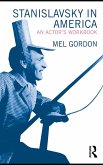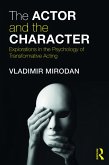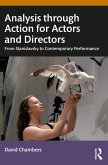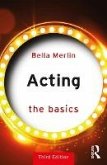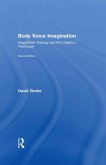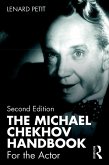Dieser Download kann aus rechtlichen Gründen nur mit Rechnungsadresse in A, B, BG, CY, CZ, D, DK, EW, E, FIN, F, GR, HR, H, IRL, I, LT, L, LR, M, NL, PL, P, R, S, SLO, SK ausgeliefert werden.
- Stanislavsky Studies
"Andrei Malaev-Babel and Margarita Laskina have taken on the formidable but necessary task of introducing Nikolai Demidov to the English-speaking world; and it is a major achievement. These pages are fresh, conversational, and, at times, provocatively categorical. Stimulating reading, they are illuminated by Malaev-Babel's impeccable research."
- Professor Maria Shevtsova, Goldsmith, University of London
"Long repressed, Demidov's radical ideas about acting are now being re-discovered and implemented in Russia. Now, through this extraordinary volume, we who read English over Russian can begin the exploration of these critical insights and lessons, and add a new name to the roster of Stanislavsky's rebellious sons: Nikolai Demidov. I believe this book may ultimately alter the course of actor training in the west."
- Professor David Chambers, Harvard University and Yale School of Drama
"Demidov, and in turn Malaev-Babel, invite us to enter into a larger system, one that purports to articulate a pathway to creative psychology that complements and enlarges Stanislavski's System. Given the years Demidov spent challenging and expanding Stanislavski's System, the subsequent decades of suppression by the Soviet regime, and the increasing globalization of Stanislavski as the actor's foundation, such an invitation is more than welcome."
- Dr. Bryan Brown, University of Exeter




